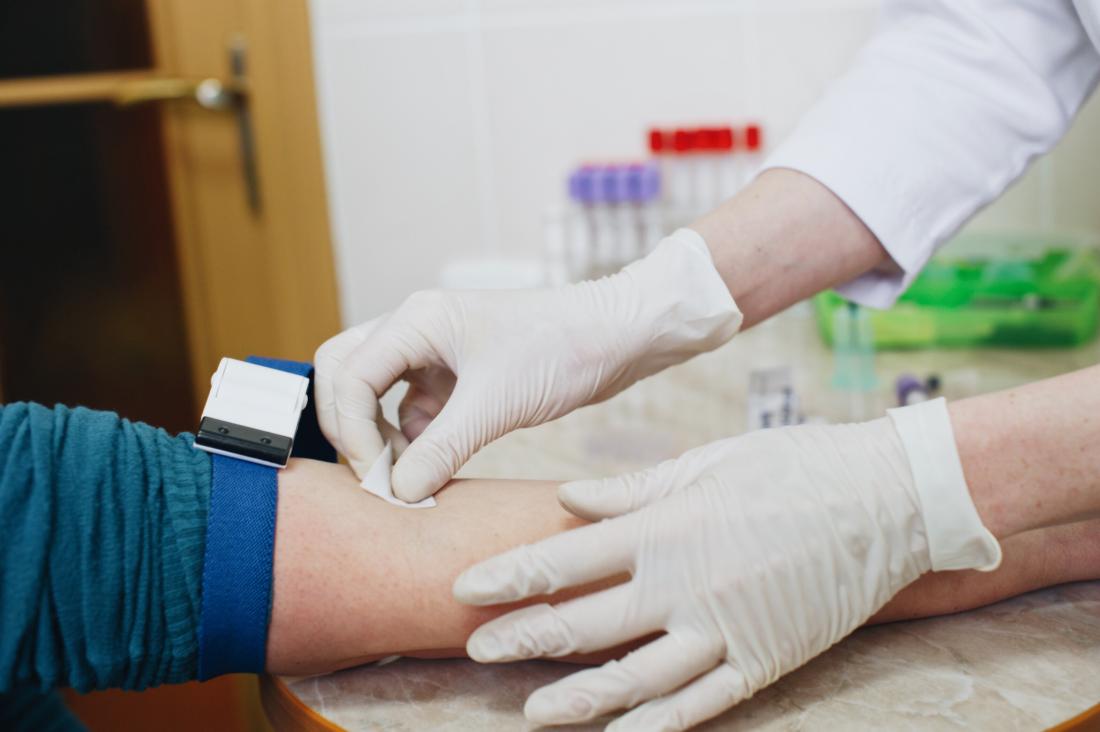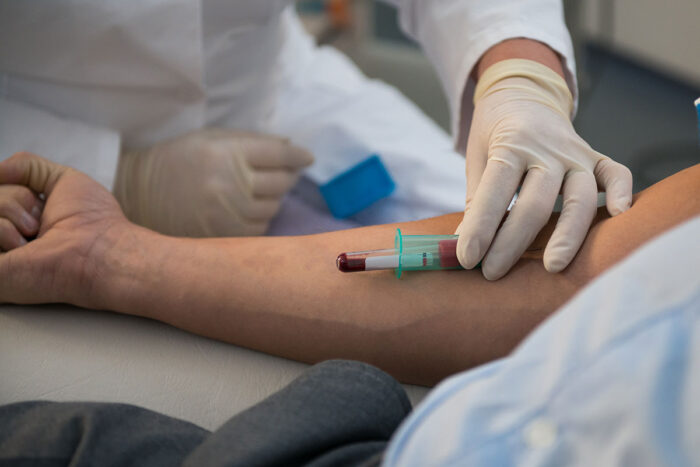By MARILYNN MARCHIONE November 30 2020 A company has started selling the first blood test to help diagnose Alzheimers disease a leap for the field that could make it much easier for people to learn whether they have dementia. Experimental test focuses on tau proteins which are considered a reliable indicator of Alzheimers.
 A New Blood Test Could Help Diagnose Alzheimer S
A New Blood Test Could Help Diagnose Alzheimer S
The test could be ready for clinical use in 2 to 3 years.

Alzheimer's blood test. A newly developed blood test for Alzheimers measures a protein called tau which forms tangles in the brains of patients with Alzheimers like. Doctors say it should not be used as an early screening tool. A new blood test may help doctors accurately and inexpensively diagnose Alzheimers disease.
Interestingly enough those two tests look for plaques and tangles but could a blood test determine whether someone may develop Alzheimers before plaques even start forming in the brain. Alzheimers blood test diagnosis moves closer to reality scientists say. A blood test to diagnose Alzheimers disease moved closer to reality this week after new findings were announced at the Alzheimers Association International Conference on July 29 2020.
A blood test is available now through your doctor that delivers a result in about 10 days and accurately determines whether someone has Alzheimers disease. Carrying this gene mutation only indicates a greater risk. See The Hunt for a Blood Test for Alzheimers Disease The C 2 N test relies on the ratio of two isoforms of the amyloid-β protein Aβ42 and Aβ40 that aggregate to form amyloid plaques in the brain combined with the presence of isoforms of apolipoprotein E ApoE that reflect whether the patient caries a genetic variant associated with Alzheimers risk.
A study published in the journal JAMA Neurology found that a blood-based biomarker test called Elecsys correctly identified people with beta-amyloid plaques with 80 percent accuracy. The means by which we detect signs of Alzheimers disease today are either through cerebral spinal fluid or a PET scan. A first-of-its-kind blood test for Alzheimers disease is now on sale signaling a potential breakthrough for patients but also raising concerns.
Scientists revealed a protein involved in the damage of brain cells accumulates in the blood of. While there is a blood test for APOE-e4 the strongest risk gene for Alzheimers this test is mainly used in clinical trials to identify people at higher risk of developing Alzheimers. Recent research found that measurements of a substance in the blood called ptau181 showed promise as an Alzheimers test.
The search for a blood test to diagnose Alzheimers disease has been a long one and researchers moved closer this year than ever before. By Being Patient June 26th 2019 Researchers are getting closer to developing a simple blood test to diagnose Alzheimers disease. The test looks for tiny amounts of a protein which is.
A blood test could spot Alzheimers disease at the earliest stage and years before symptoms appear studies in the US and Sweden suggest. In May MedPage Today reported on an investigational blood. A simple blood test can diagnose Alzheimers disease sometimes decades before symptoms even begin.
Scientists have been examining whether another form of the tau protein called ptau217 can also serve as. It also raises concern about the accuracy and impact of such life-altering news. IE 11 is not supported.
Research presented at this years virtual Alzheimers Association International Conference AAIC on Tuesday and published in the Journal of the American Medical Association focused on a new blood test that can detect a specific type of protein that serves as an indicator for both amyloid plaques and tau tangles two defining features of Alzheimers disease which is the most common form of dementia. The Preclivity AD Test from C2N Diagnostics measures proteins in blood plasma that indicate a buildup of plaques known to cause dementia in peoples brains. The approach could be less invasive and costly than current brain imaging and spinal fluid tests enabling earlier treatments and testing of novel approaches.
A new blood testing technique could help researchers detect Alzheimers disease prior to onset or in those showing early signs of dementia. It does not indicate whether a person will develop Alzheimers or whether a person has Alzheimers.